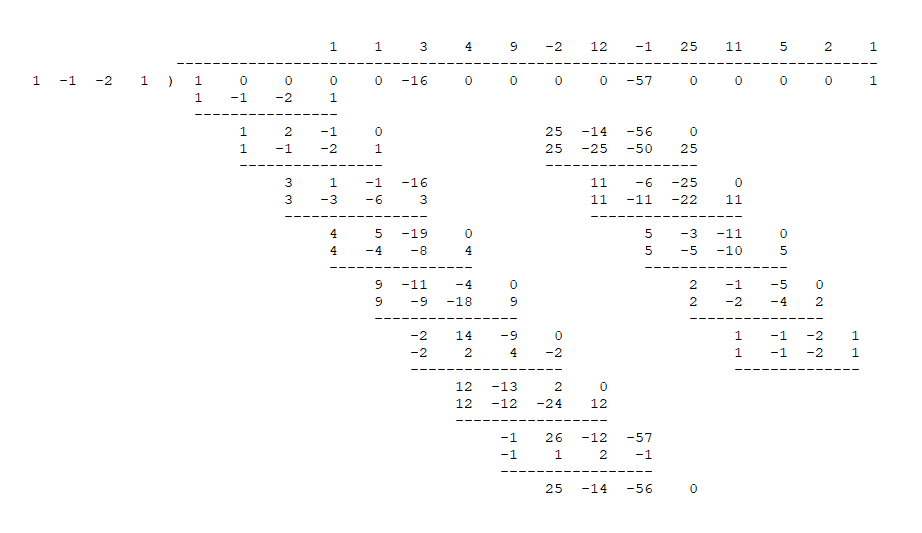Roots of x^3-16x^2-57x+1=0 Is a, b, and c Then a^(1/5)+b^(1/5)+c^(1/5)=?
1 Answer
Explanation:
Here's a solution which I came to via an untidy route...
Given:
x^3-16x^2-57x+1 = 0
First use a numerical method to find the three roots of the given equation are approximately:
-3.01506549023785
0.0174583963437910
18.9976070938941
The fifth roots of these roots are approximately:
alpha = -1.246979603717467
beta = 0.4450418679126286
gamma = 1.8019377358048390
The sum of these approximate roots is very close to
Using the values of
(x-alpha)(x-beta)(x-gamma) = x^3-x^2-2x+1
So if
(x^5)^3-16(x^5)^2-57(x^5)+1 = x^15-16x^10-57x^5+1
We can long divide these polynomials by long dividing their coefficients thus:

So notice that the long division is exact, confirming that the roots of

